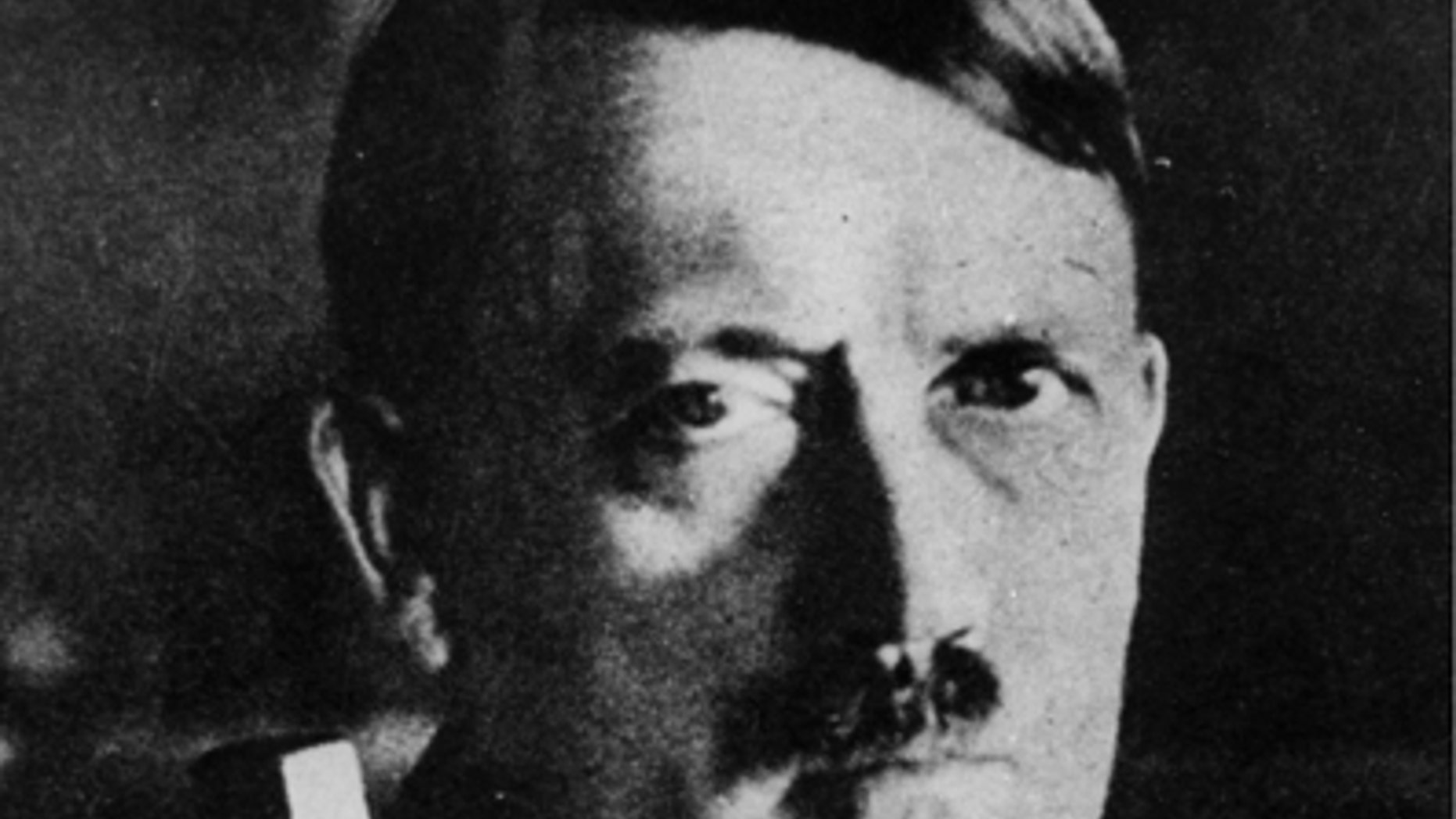Hitler's Early Career: Understanding His Ascent To Power
Have you ever wondered about the path a person takes before they become a figure of immense historical consequence? So, too it's almost like we often look at the big picture, the devastating results, but perhaps miss the initial steps. Understanding someone like Adolf Hitler, a name synonymous with profound destruction, really requires us to look at his beginnings. This look at Hitler's early career helps us grasp how a man, once just a soldier, rose to become an unchallenged dictator, a truly unsettling thought for many.
His story, in a way, is a stark reminder of how radical ideas can take root and gain traction, especially during times of great hardship. We're talking about a period where Germany was struggling, and a charismatic, albeit dangerous, individual could step forward with promises that resonated deeply with a hurting population. It’s a very complex piece of history, one that still holds lessons for us today.
This article will explore the formative years of Adolf Hitler's public life, from his time serving in the military to his initial rise within the political landscape. We will examine the promises he made and the methods he used to gather support, which, you know, ultimately led to his grip on an entire nation. It's a look at the early stages of a journey that, sadly, plunged the world into conflict.
Table of Contents
- Biography: Adolf Hitler
- Early Days and Military Service
- The Nazi Party and Its Beginnings
- Promises and the Path to Power
- The Dictator's Ascent
- Understanding the Impact
- Frequently Asked Questions
- Conclusion
Biography: Adolf Hitler
Here's a quick look at some key details about Adolf Hitler, a figure who, you know, left an undeniable mark on the 20th century. This information provides a basic framework for understanding the person we're discussing.
| Detail | Information |
|---|---|
| Full Name | Adolf Hitler |
| Role | Dictator of Nazi Germany, Leader (Führer) |
| Political Party | National Socialist German Workers' Party (Nazi Party) |
| Years in Power (as Dictator) | 1933 - 1945 |
| Key Historical Events | Initiated World War II, Orchestrated the Holocaust |
| End of Life | Committed suicide on April 30, 1945, in Berlin |
Early Days and Military Service
Adolf Hitler, before he became the notorious dictator, had a life that included military service. It's often overlooked, but his time in the German military during World War I was, you know, a significant period for him. This experience shaped some of his later views and, in a way, perhaps his approach to leadership.
He served with the German military in World War I, a conflict that deeply affected Europe and Germany in particular. This period, very much a time of immense struggle and national upheaval, would have exposed him to the harsh realities of war and, you know, probably fueled some of the anger and resentment that he would later tap into. It’s interesting to consider how this early exposure to conflict might have influenced his later decisions.
His military background gave him a certain perspective, a rather specific kind of experience that many of his future followers might have admired or related to. It’s fair to say that, in some respects, this part of his life provided a foundation, a starting point, for his eventual political involvement. He was, after all, a veteran, and that carried a certain weight in post-war Germany, you know.
The Nazi Party and Its Beginnings
After his military service, Adolf Hitler became involved with the National Socialist German Workers' Party, more commonly known as the Nazi Party. This was a crucial step in his early career, as it provided him with a platform, a way to start spreading his radical ideology. He very quickly became the leader of this group, a position that would allow him to build significant influence.
The Nazi Party, under his leadership, began to grow, attracting people who felt disenfranchised or angry about Germany's situation after World War I. It’s almost like he found a way to articulate their frustrations, giving voice to a widespread discontent. He was, in essence, building a movement from the ground up, a rather frightening thought when we look back at what happened next.
His early work with the party involved developing and promoting his radical ideology, which, you know, was a key component of his appeal. He wasn't just a politician; he was a figure who presented a completely new way of thinking for many Germans. This ideology, which was quite extreme, became the foundation for everything the party stood for, and it really took hold in a way that surprised many at the time.
Promises and the Path to Power
One of the most important aspects of Hitler's early career was his ability to gain power by making popular promises. He understood what the German people wanted to hear during a very difficult time. He promised, for example, to improve Germany's economy, which was in a truly dire state after the war and the Great Depression. This was a message that resonated deeply with many struggling families, you know.
Beyond economic improvements, he also promised to restore Germany's status in Europe. After the humiliation of World War I and the Treaty of Versailles, many Germans felt their nation had been unfairly treated and diminished. Hitler tapped into this feeling, promising to bring back national pride and strength. This appeal to national dignity was, in some respects, a very powerful motivator for people looking for hope.
He used these popular promises, which were quite compelling to a desperate populace, to gather significant support. It's almost like he offered a clear, albeit dangerous, vision for the future when others couldn't. This ability to connect with the public's hopes and fears was a key factor in his rise, and it really shows how a persuasive speaker can sway public opinion, you know.
His journey to power involved becoming the Chancellor of Germany in 1933. This was a pivotal moment, as it gave him a legitimate governmental role. From this position, he then consolidated his authority, eventually becoming the leader (Führer), or unchallenged dictator, of Germany. This transition from chancellor to dictator was, in a way, a carefully orchestrated process, demonstrating his strategic approach to gaining complete control.
The Dictator's Ascent
By 1933, Adolf Hitler had, you know, cemented his position as the leader of Germany. He wasn't just a party head anymore; he was the nation's unchallenged dictator, a truly significant shift in power. This period, from 1933 until his death in 1945, marked his complete control over the country, a rather frightening reality for millions.
As the head of the National Socialist German Workers' Party, he used his newfound power to orchestrate massive changes within Germany. He led Germany in an aggressive war, which, you know, became known as the Second World War in Europe. This was a conflict that he was the primary instigator of, a truly devastating global event that reshaped the world map.
His early career, leading to this point, had laid the groundwork for these actions. The radical ideology he had promoted from the beginning, the promises he had made, and the support he had gathered, all contributed to his ability to wage such a war. It's a sobering thought to consider how these early steps led to such widespread destruction and, tragically, the mass execution of people, an event we now call the Holocaust. He was, in fact, responsible for initiating the Holocaust, a truly dark chapter in human history.
He was, in some respects, one of the most powerful and notorious dictators of the 20th century. His rise from a relatively unknown figure to an absolute ruler is a subject that continues to be studied, and you know, it offers a stark lesson about the dangers of unchecked power and extremist ideologies. His influence, even today, is still very much felt in discussions about history and human behavior.
Understanding the Impact
Looking back at Hitler's early career helps us understand the wider impact he had on world history. His actions, which began with his political ascent, led directly to World War II and the Holocaust. These were events that, you know, changed the course of the 20th century and continue to affect us even now, as of .
His radical ideology, which was developed and spread during his early political days, laid the foundation for the atrocities that followed. It’s a very stark example of how ideas, even very dangerous ones, can gain momentum and lead to unimaginable consequences. The way he gained power, by making promises and appealing to people's frustrations, is something that historians and social scientists still study quite closely.
Understanding his early life and how he became the leader (Führer) of Germany from 1933 until his suicide in 1945, is crucial for anyone trying to grasp the complexities of that era. It's not just about the war itself, but about the mechanisms of power, the influence of propaganda, and the human cost of extremism. You can learn more about totalitarian regimes on our site, and perhaps link to this page for a deeper look at World War II.
Frequently Asked Questions
How did Adolf Hitler first gain political influence?
Adolf Hitler first gained political influence by becoming the leader of the Nazi Party, which was a very important step for him. He rose to power with his radical ideology, which, you know, appealed to many people during a time of great difficulty in Germany. He effectively used popular promises, like improving the economy, to build a following, which was quite effective.
What promises did Hitler make to the German people?
Hitler made several popular promises to the German people to gain their support. He promised to improve Germany's economy, which was in a very bad state, and also to restore Germany's status in Europe. These promises, you know, resonated with a population that felt humiliated and economically distressed after World War I, and they were a key part of his appeal.
When did Hitler become the leader of Germany?
Adolf Hitler became the leader, or unchallenged dictator (Führer), of Germany in 1933. He had previously served as the Chancellor of Germany, and from that position, he consolidated his power. He remained in this role until April 30, 1945, when he committed suicide in his bunker in Berlin, which, you know, marked the end of his rule.
Conclusion
Exploring Hitler's early career truly offers a window into the origins of one of the 20th century's most destructive periods. We've seen how he served in World War I, became the leader of the Nazi Party, and then, you know, leveraged popular promises to gain political power. His ascent from a soldier to the unchallenged dictator of Germany by 1933 was a process fueled by a radical ideology and the widespread discontent of a nation.
Understanding these initial steps is vital for grasping the full scope of his impact, from initiating World War II to orchestrating the Holocaust. It's a reminder of how quickly a society can change when certain ideas take hold and how important it is to be aware of the historical forces at play. For more detailed historical context, you might consider visiting the United States Holocaust Memorial Museum website, which offers extensive resources on this period.

Austrian police go on the hunt for Adolf Hitler impersonator | Fox News

Business Owners Turn to an Unlikely Mascot: Hitler - The New York Times

West Virginia suspends several after corrections officer class appears